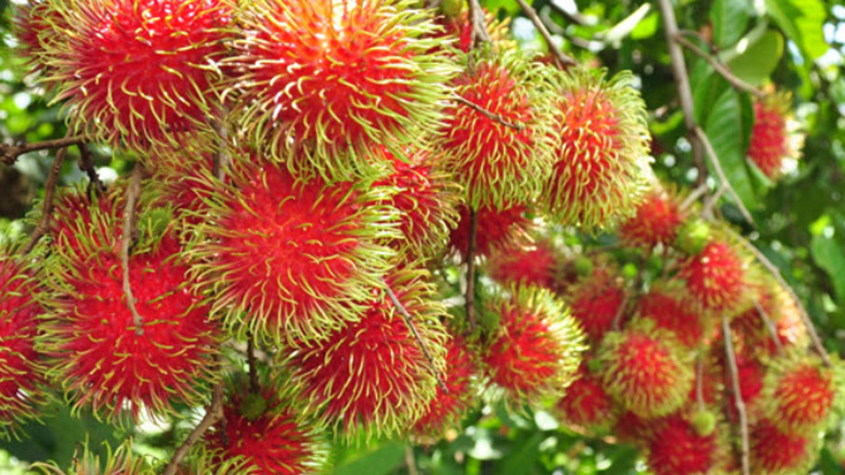What is life without a little spice? Vernon Abeyratne, CEO of Joint Agri Products Ceylon (Pvt) Ltd (JAPC) could not agree more. The company is one of the largest exporters of Sri Lankan spices to the European and North American markets. Among its lead products, Ceylon cinnamon has gained worldwide recognition with a certification mark and has become a geographical indication in Europe.

For most of his career, Vernon worked for private export companies as well as for the Sri Lanka state Trading Consolidated Exports Corporation as a senior export executive. As such, he traveled to many countries and participated in trade fairs in Europe and the United States.
In 1993, he decided to start his own company. With the help of a trusted and faithful client who provided his first steady stream of orders and the support of local suppliers who agreed to provide credit facilities. He gathered six shareholders to bring up some seed funding, and after four months started exporting spices and expanding the business.
From his modest start with five employees, Vernon, the Managing Director and Chairman of the company runs the business with his son and provides work to over 200 permanent staff. Joint Agri Products Ceylon (Pvt) Ltd (JAPC) exports products for a value over US$ 10 million per year. The company has become over the years the largest organic exporter of Ceylon Cinnamon with 600 M/tons to the world market.
JAPC, originally named Orient Trading Company (Pvt) ltd also quickly converted from a trading company, buying from producers and exporting, to a fully equipped producer and manufacturer, and finding its name confusing, changed it to JAPC.
From Conventional to Organic Spices
“I started with conventional spices since in the mid-1990s organic was not that prominent,” explained Vernon, adding that the demand for organic spices has been growing strongly for some time, with a 10% increase a year in the United States and Europe.
Consequently, 90% of the JAPC’s production is now organic, with multiple certifications, including EU Organic, USDA Organic, Demeter, and, Bio Suisse. All JAPC spices are also Fair Trade certified.
The company is operating from its plant in Weliweriya, an 85,000 square feet facility built on four acres of land and equipped with modern technology to satisfy all certificate requirements, in particular steam sterilization material. The facility also hosts an in-house laboratory conducting quality tests.
Sri Lankan organic spices and products

JAPC has a full range of organic spices and products on offer including Ceylon cinnamon, black pepper, white pepper, dehydrated green pepper, nutmegs, mace (nutmeg’s seed covering), cloves, clove stems, lemongrass, organic coconut products, organic dehydrated fruits, organic essential oils and ground spices.
JAPC’s leading products are black pepper, cinnamon, nutmeg, and mace. The company does not sell its products locally but exports them, mostly to European countries and the United States. JAPC export some 500m/tons of Black pepper about 500 m/tons, about 200 m/tons of nutmeg, 25 m/tons of mace, some 700 m/tons of coconut products, and about 100 m/tons of cloves.
All spices and products are homegrown by small farmers. The company is collaborating with farmers’ organizations representing about 3,000 farmer families.
Sri Lankan Medicinal Spices
According to Vernon, cinnamon comes in two kinds: Ceylon cinnamon (also called true cinnamon), and cassia. Cassia, he said, contains coumarin, a compound that can have adverse health effects, and of which Ceylon cinnamon is almost free.
Sri Lankan black pepper has high piperine and oil content compared to spices originating from other countries. With 6 or 7% piperine, Sri Lankan black pepper far exceeds the average 4 to 5 % piperine content of other black peppers, Vernon stated. “Our pepper is unique,” he stated.
In the same vein, he said Sri Lankan nutmegs have some 15% oil content, higher than average, and are favored by buyers, he explained.
Beyond the tastefulness of spices, they also are believed to have medicinal properties. Some studies found that cinnamon has anti-viral, anti-bacterial, and anti-fungal properties, and could reduce blood sugar, while nutmeg may have cholesterol-lowering, stimulant, and analgesic properties. Spices are also used in Ayurvedic medicine, and pharmaceutical and cosmetic industries.
Sri Lanka, dubbed the spice island, has an ideal climate, neither too wet nor too dry, with sufficient rainfall and humidity to grow its bountiful spice harvests.
Certification Mark, Geographical Indications for Pure Ceylon Cinnamon
Pure Ceylon Cinnamon is registered as a certification mark at the National Intellectual Property Office. The Sri Lanka Export Development Board owns the certification mark and licenses it to producers, such as JAPC. Ceylon Cinnamon has also obtained a geographical indication in the European Union earlier this year.
According to the Sri Lanka National Intellectual Property Office, new regulations are being drafted to facilitate the national geographical indication registration of Ceylon Cinnamon. Other products might follow, such as Ceylon tea and Sri Lanka Pepper.
Branding – a Top Priority for Joint Agri Products Ceylon
Beyond the protection soon to be given by geographical indications for some of his products, protecting the company name and logo is next on Vernon’s agenda. A recognizable protected brand is important, he said, “it is an assurance of quality”. Developing a brand will make JAPC products stand out and buyers will know that they are buying premium quality, he added. By registering JAPC’s name and logo, not only Vernon expects to increase sales, but also, more importantly, build up buyers’ confidence in the products.
The Covid-19 crisis stopped Vernon’s registration in its tracks, while the company struggled to keep up with increased demand for spices, thought to have healing qualities, and faced transportation challenges.
However, in the next five years, with strong branding protection, JAPC hopes to increase its market share in the U.S. and continue building a solid reputation for premium organic products. According to Vernon, Sri Lanka still have vast quantities of arable land ideal for growing spices in the island’s specific environment.



